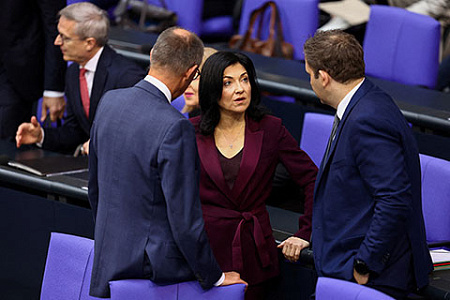
Germany’s new government has narrowly pushed through a budget for 2025, but the agreement, reached after a marathon 11-hour session, does little to hide the deep fractures within the ruling coalition and the immense economic storm clouds gathering over Europe’s largest economy. While providing a temporary financial roadmap, the budget has exposed profound ideological divides and a looming fiscal crisis that threatens to unravel the government itself.
The new budget was necessitated by the collapse of the previous government, which fell apart over the very issue of public spending and debt. In a controversial first move, the new “Grand Coalition” of the center-right Christian Democrats (CDU) and center-left Social Democrats (SPD) used a legislative window to amend the constitution and raise the national debt ceiling—a move that would have failed in the newly elected parliament.
However, this increased borrowing power was immediately consumed by new, pressing realities. Chancellor Friedrich Merz’s commitment to significantly boost military aid for Kyiv and rearm the German army (Bundeswehr), coupled with the economic strain of a trade dispute with the United States—estimated by the DIW economic institute to cost up to €290 billion—has severely constrained the government. The resulting €502.5 billion budget, which will be formally approved in September to cover only the final quarter of the year, relies on €140 billion in special debt-financed funds for military and infrastructure spending. It has been fiercely criticized by opposition parties like the Greens and the Left Party as an unrealistic stop-gap measure.
The precarious compromise is already fraying at the seams. A sharp conflict has erupted between Chancellor Merz, who is advocating for social spending cuts and lower taxes for the wealthy, and his coalition partners. Labor Minister Bärbel Bas of the SPD publicly lambasted the Chancellor’s proposals as “stupidity” during a party youth conference, demanding instead that high earners contribute more to the social system. This open clash underscores the fundamental disagreement between the coalition’s pro-business and social-democratic wings.
While Finance Minister Lars Klingbeil has projected confidence for the 2025 and 2026 budgets, he has acknowledged that a gaping €30 billion hole is projected for 2027, with no clear instruments to close it. With Chancellor Merz warning the public that the state can no longer guarantee the previous standard of living, increasingly radical solutions are being floated. In a startling proposal, some political figures have reportedly suggested banning the far-right Alternative for Germany (AfD) party to remove them from parliament and redistribute their seats, thereby creating the two-thirds majority needed to raise the debt limit once more, as the government remains unwilling to cut military or Ukraine-related spending.
Underpinning the fiscal crisis is a deep-seated demographic time bomb. Experts like Marcel Fratzscher, head of the DIW, point to Germany’s low birth rates, noting that the “baby boomer” generation now entering retirement is not being replaced by enough working-age children to sustain the pension system. This has led to other extreme ideas, such as a proposal for new retirees to perform a mandatory year of public service in kindergartens, nursing homes, or even in non-combat roles for the Bundeswehr. Past attempts by former Chancellor Angela Merkel to solve demographic shortfalls through migration have already fueled significant anti-immigrant sentiment, complicating the path forward.
With its budget a temporary patch on a foundation weakened by internal political strife, economic headwinds, and an unfolding demographic crisis, Germany’s new coalition is on precarious ground. The social tensions fueled by these difficult choices could easily lead to the collapse of yet another government, casting a long shadow of instability over the nation’s future.
